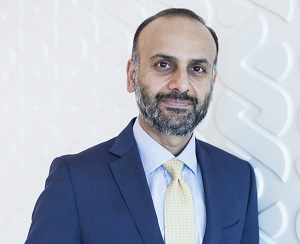No matter how much money or how many assets you own, following a well-founded wealth management strategy is critical to growing and maintaining your investment portfolio.
Long-believed to be the exclusive purview of high net-worth individuals (HNWI,) access to information and advice is undergoing a “democratisation” process and permitting even consumers with more modest funds or ambitions, to contemplate wealth-growth scenarios. As with so many aspects of society these days, technology is the main driver; from mobile telephony, the spread of smartphones, the advent of the Internet to FinTech companies creating apps to help financial services providers engage with their clients.
At the top end of the market, looking at family offices in Emerging Markets with over $100 million in assets or HNWI’s with a personal worth in excess of $25 million, the focus is on preserving wealth, capital growth and succession planning. These are some of the fastest growing wealth pools in the world, driven by a scale of entrepreneurship that seems to value the growth of businesses for future generations, rather than immediate wealth creation. Not surprising, therefore, that the Attitudes Survey 2017 by international property brokers Knight Frank found that, “More than half of the respondents within the Middle East said that passing wealth onto the next generation was a major focus (51%), behind only wealth preservation (73%) and capital growth (61%). This measured approach to wealth management is reflected by the prioritisation of privacy (58%) minimising risk (48%), rather than looking for innovative new ways to invest (19%).”
Those with more modest means are not excluded from the discussion and the needs of Millennials, roughly the generation born between 1980 and 2000, are forcing wealth- managers and private bankers to look at how to tap into the potential of this group. These are the ‘future rich’ with low to medium levels of financial knowledge. Considering that this generation represents 40% of the world’s population, the need to educate and prepare these individuals for financial discipline presents a significant challenge to wealth managers. The priority is in identifying investment vehicles that will ensure their money works ‘harder’, with more interactive opportunities towards advisory services, with webinars and podcasts to direct them towards their long-term savings and investment aspirations.
Deloitte’s “A new age for family businesses in the Middle East 2017”, Knight Frank’s 2017 Wealth reports point to two very discernible trends, both amongst HNWIs and Millennials. The first is that digital is everything, from checking the weather or train timings to transacting with stores, airlines, banks etc. The other is that, as a generation, this younger set shows a preference for looking at ethical and sustainable investments, from a very early age. Financial institutions, in general, and wealth managers, in particular, are behind the curve in digital terms. Their wealthier clients, at the moment, are older and technology-averse. So, how do institutions propose to connect with this younger clientele?
One possible solution is the use of “gaming” scenarios to help educate clients on the real-world implications of decision-making in a financial sense, the results of which can also be used to gauge the individual’s risk appetite. Paolo Sironi, FinTech Leader at IBM Watson Financial Services explained at the eFintech Show 2017 that people learn by experience so, “The professional shift from a market oriented perspective towards a client/portfolio centric definition of the asset allocation can be facilitated by Probabilistic Scenario Optimisation. But risk and return, alias fears and ambitions, cannot enter the new equation if investors and their advisors do not change at the same time their behavioral approach to investing. Therefore, educational Gamification has the potential to become a growing field of innovation, to help educate digital financial advisors and their digital clients, to change their investment behavior by learning what money is for, how to invest and what to believe in when setting financial goals.”
This approach has been used to good effect by certain types of apps. Whilst budgeting software that lets you view your financial expenditure and current status has been around for a while, various platforms are now available for the less wealthy to invest their spare change into a savings product or, indeed, a capital growth fund. Of course, these apps typically come devoid of any tailored advice but that level of sophistication is coming. HNWIs require a more studied and “personalised” approach that only the more traditional private banking relationships can provide, although the ability to check information or transact instantaneously via a digital channel is a must. Strategy&’s report GCC Private Banking Study – Seizing the Opportunities concludes that most individuals in the Middle East still feel most comfortable doing business with financial service providers who have a worldwide presence. That’s good news for banks like Standard Chartered who have a global reach with solid research units and state-of-the-art digital capabilities.
It is crucial for clients to have a trusted partner in their end-to-end financial planning journey – from accumulating and growing their wealth up to the stage of passing on their successes as a heritage for those they cherish. Standard Chartered is committed to investing and innovating in its Wealth Management business, to position it for further growth through a range of initiatives designed to enhance its client experience across its footprint in Asia, Africa and the Middle East.

